 Your new post is loading...
 Your new post is loading...
August , 2017
In her celebrated book ‘Mindset: The New Psychology of Success’, Stanford university psychologist Carol S. Dweck makes a strong case backed up with scientific evidence for the power of mindset in shaping one’s success or failure in almost every facet of our life.Those with a fixed mindset mentality tend to be limited in their learning scope believing that their inner traits and abilities are biologically determined. On the other hand, people with a growth mindset embrace change and tend to learn more from life experiences because for them concepts such as skills, abilities and competencies are not fixated and can be developed through a process of error and trial.
In today’s post, we are sharing with you this handy infographic we created based on Marcus Guido’s post ’10 Ways Teachers Can Instill a Growth Mindset in Students’. Guido walks you through the different strategies you can use with your students to cultivate a growth mindset in your class and ultimately enhance students learning. Read his post to learn more about each of the strategies featured here.
The visual below is also available in PDF format from this link. Learn more / En savoir plus / Mehr erfahren: https://gustmees.wordpress.com/?s=growth+mindset https://gustmees.wordpress.com/?s=practice
Via Educatorstechnology

|
Scooped by
Gust MEES
|
Bigger issues: #1. Unfairness is necessary. Giving second chances, for example, isn’t fair to those who perform on schedule and within expectation. But, not giving second chances is cruel. #2. Fairness is merciless. Mercy is not getting what you deserve. In other words, mercy isn’t fair. #3. Equal opportunity must include reward or lack of reward. Those who seize opportunities earn reward. Those who don’t seize opportunities don’t earn reward. It’s important to note that it’s not necessary to punish those who don’t seize opportunity. Rewarding teams always includes some unfairness.
#4. Fairness – treating everyone the same – de-motivates high achievers and rewards low performers. #5. Fairness, when it means everyone is treated the same, promotes inaction. If you can’t be do something for everyone then you can’t do it for anyone. The result is you don’t do much. Learn more / En savoir plus / Mehr erfahren: http://www.scoop.it/t/21st-century-learning-and-teaching/?&tag=Counterfeit+Leadership http://www.scoop.it/t/21st-century-learning-and-teaching/?&tag=Growth+Mindset

|
Scooped by
Gust MEES
|
In science, we build a firm foundation and then we keep renovating the house. We find interesting results, we are fascinated by them, we don’t always trust them, so we go back and replicate them. We also challenge them by asking, where will this not work? When does the effect go away? How can we use better methods to test our theories?
As part of this process, scientists ask each other questions. Recently, other scientists asked us some questions about three of our papers. We took this very seriously, carefully considered each inquiry, delved into the studies again (in some cases reanalyzing the data), and prepared three documents, each detailing our process and our findings (here, here, and here). In each case, we showed that the conclusions reached in the paper were sound. But, as with anything that helps make science better, we were grateful for the questions because they pointed out areas for improvement or clarity, and because we believe in open science.
It is important however to consider these questions in light of a large body of work. The growth mindset story does not rest on a handful of isolated studies. Research in this area has been ongoing for 30 years and the field has amassed a large body of work. A meta-analysis published in 2013 found 113 studies conducted by many authors and concluded that mindsets are a significant factor in people’s self-regulation toward goals.
Meta-analyses are helpful, but not the final word. Government data collected at a country level—all the 10th grade students in the country of Chile (over 160,000)—showed that holding a growth mindset predicted academic achievement at every socioeconomic level. Recently, the state of California, collecting data from over 100,000 middle schoolers, found that students’ mindsets were a good predictor of their test scores. And this doesn’t include many experimental studies that have carefully oriented children (or adults) toward different mindsets and found effects on outcomes. It is highly unlikely that mindset is a phantom phenomenon. Learn more / En savoir plus / Mehr erfahren: http://www.scoop.it/t/21st-century-learning-and-teaching/?tag=carol+dweck

|
Scooped by
Gust MEES
|

|
Scooped by
Gust MEES
|

|
Scooped by
Gust MEES
|
What happens when someone asks us to do something really tough? First, we try to get out of it. Right? Next, we complain that they’re asking the impossible. Then, we whine to our friends, “I’m having such a bad day” or “The world is unfair.” After we’ve exhausted every way to get out of the work . . . we take a break. (It’s exhausting.) When we return, we brainstorm excuses to cover our behind if things go south. And, when all else fails, and it usually does, we get down to work while talking to ourselves.
Contrast this mindset to a champion’s approach . . .
I can hear the coach saying, “If they’re bigger, be faster” “If they’re better, play up.” “If you’re hurt, walk it off and then get back in the game.” There’s no whining, no excuses, and certainly no second-guessing. The players are positive, they’re optimistic, and they’re entirely focused on winning. These are the trademarks of winners. They’ll do whatever it takes to win. They know they have to “get it done.” Learn more / En savoir plus / Mehr erfahren: http://www.scoop.it/t/21st-century-learning-and-teaching/?tag=Frank+SONNENBERG http://www.scoop.it/t/21st-century-learning-and-teaching/?tag=Growth+Mindset

|
Scooped by
Gust MEES
|
An individual with a digital mindset understands the power of technology to democratize scale and speed up every form of interaction and action Growth Mindset Carol Dweck, in her research, differentiated between Fixed Mindset and Growth Mindset, and how these linked to people’s perception of their own abilities. Those with a fixed mindset believe that intelligence is static, and this can become an obstacle to change in behavior. This in turn makes it difficult for them to be learning agile or to adjust to a rapidly changing and ambiguous world. On the other hand, people with a growth mindset are likely to take every opportunity to pull the resources they need to perform better. They are usually the ones to volunteer information, ask questions and try out new ways of doing things. It cannot be argued that the digital world calls for constant exploration, experimentation and learning. And individuals with a growth mindset are more likely to put in extra effort to learn new things, take charge of their own learning, and possess a resilience that helps them to overcome challenges. Agile Approach Being agile is more than just adapting to change. In the age of disruptive tech, we must be able to foresee and change before the need to change arises. Agility in this context encompasses the skill of being able to scan the landscape of one's domain of work and organizational ecosystem, and keeping pace with what is happening at the edges to remain relevant. In the digital era, this would mean being comfortable with technology, seeing change as an opportunity, and accepting the new ways of working without feeling threatened.

|
Scooped by
Gust MEES
|
Read an excerpt... Four-Dimensional Education: The Competencies Learners Need to Succeed October 2015 192 pages Copyright © 2015 by Center for Curriculum Redesign All rights reserved. ISBN-13: 978-1518642562 ISBN-10: 151864256X "A very thoughtful treatment of the competencies our students need to thrive in today’s (and tomorrow’s) world. This book will help educators understand and navigate the critical choices we are facing.” –Carol Dweck, Lewis & Virginia Eaton Professor of Psychology, Department of Psychology, Stanford University

|
Scooped by
Gust MEES
|

|
Scooped by
Gust MEES
|
Most educators would be aware of the term ‘growth mindset’ by now. The idea is you can work on being smarter. Whatever abilities and talents you have are just a starting point, if you work hard, make mistakes and keep trying, you can achieve. Teachers are using it to encourage and motivate children in their classrooms.
But there is another application for this idea; it can be used as an underlying ethos for the professional learning of teachers.
The term ‘growth mindset’ has developed from work of Professor Carol Dweck. Her research is psychological in nature. She is particularly interested in the areas of motivation and development.
Learn more:
http://www.scoop.it/t/21st-century-learning-and-teaching/?tag=Growth+Mindset

|
Scooped by
Gust MEES
|
|

|
Scooped by
Gust MEES
|
STILL following "WE have ALWAYS done it this way" OR ALREADY on Growth-Mindset!? Well, when analyzing posts from EDUcators, TEACHers from around the world on Social-Media twitter since 2009 already, I must admit (excuse-me please...) that MOST of THEM are still on a Fixed-Mindset! Very rare are those who have already adapted their… Learn more / En savoir plus / Mehr erfahren: https://gustmees.wordpress.com/?s=growth+mindset https://gustmees.wordpress.com/?s=practice https://www.scoop.it/t/21st-century-learning-and-teaching/?&tag=Growth+Mindset

|
Scooped by
Gust MEES
|
An idea that is beginning to gain a lot of favour in educational circles at the moment is the notion of fixed versus growth mindsets, and how they might relate to students and learning. Based on the work of Stanford University psychologist, Carol Dweck, the idea of mindset is related to our understanding of where ability comes from. It has recently been seized upon by educators as a tool to explore our knowledge of student achievement, and ways that such achievement might be improved. Learn more / En savoir plus / Mehr erfahren: http://www.scoop.it/t/21st-century-learning-and-teaching/?&tag=Growth+Mindset

|
Scooped by
Gust MEES
|
False growth mindset is saying you have growth mindset when you don’t really have it or you don’t really understand [what it is]. It’s also false in the sense that nobody has a growth mindset in everything all the time. Everyone is a mixture of fixed and growth mindsets. You could have a predominant growth mindset in an area but there can still be things that trigger you into a fixed mindset trait. Something really challenging and outside your comfort zone can trigger it, or, if you encounter someone who is much better than you at something you pride yourself on, you can think “Oh, that person has ability, not me.” So I think we all, students and adults, have to look for our fixed-mindset triggers and understand when we are falling into that mindset.
I think a lot of what happened [with false growth mindset among educators] is that instead of taking this long and difficult journey, where you work on understanding your triggers, working with them, and over time being able to stay in a growth mindset more and more, many educators just said, “Oh yeah, I have a growth mindset” because either they know it’s the right mindset to have or they understood it in a way that made it seem easy. Learn more / En savoir plus / Mehr erfahren: http://www.scoop.it/t/21st-century-learning-and-teaching/?tag=Growth+Mindset https://gustmees.wordpress.com/2016/11/14/pssst-the-most-important-in-education-understanding/ https://gustmees.wordpress.com/2016/11/01/getting-ready-for-modern-education-first-try-to-understand-what-it-is/

|
Scooped by
Gust MEES
|
A Checklist For Today's Teachers | #ModernEDU

|
Scooped by
Gust MEES
|
I’ve compiled a list of statements offering new teachers advice as they enter their first year of teaching. It is my intention that these suggestions will dispel many of the myths pre-service teachers encounter as they complete their training programs. Don’t accept the DEFAULT, seek out an option that will be BETTER for students: - Make it your mission to fight “We’ve always done it this way” thinking.
- Be a disruptor and shake things up. Create an epic classroom!
- Start slowly with little tweaks like replacing rows of desks with clusters of four in all classrooms, especially those in middle school and high school.
- Create the change you wish to see in your school.
Be so GOOD they can’t ignore you:

|
Scooped by
Gust MEES
|
In the best guide I’ve found to learning this skill, “Thanks for the Feedback: The Science and Art of Receiving Feedback Well,” Douglas Stone and Sheila Heen of the Harvard Negotiation Project explain that feedback — both positive and negative — is challenging because it hits us in the vulnerable soft spot between our desire to grow and our deep need to be accepted and respected. The key to hearing feedback well, they argue, is to adopt what the psychologist and author Carol Dweck calls a “growth mindset.” People with a growth mindset believe that effort and challenge make us better, stronger and smarter, while those with a “fixed mindset” believe that our inherent assets are static no matter what we do.
Not all of the criticism kids face is constructive. Some of it is born out of ulterior motives or dark intentions, but the good news is that a growth mindset can protect kids from this sort of feedback as well. Learn more: - http://www.scoop.it/t/21st-century-learning-and-teaching/?tag=Growth+Mindset - http://www.scoop.it/t/21st-century-learning-and-teaching/?tag=Criticism

|
Scooped by
Gust MEES
|

|
Scooped by
Gust MEES
|

|
Scooped by
Gust MEES
|

|
Scooped by
Gust MEES
|

|
Scooped by
Gust MEES
|
|



 Your new post is loading...
Your new post is loading...

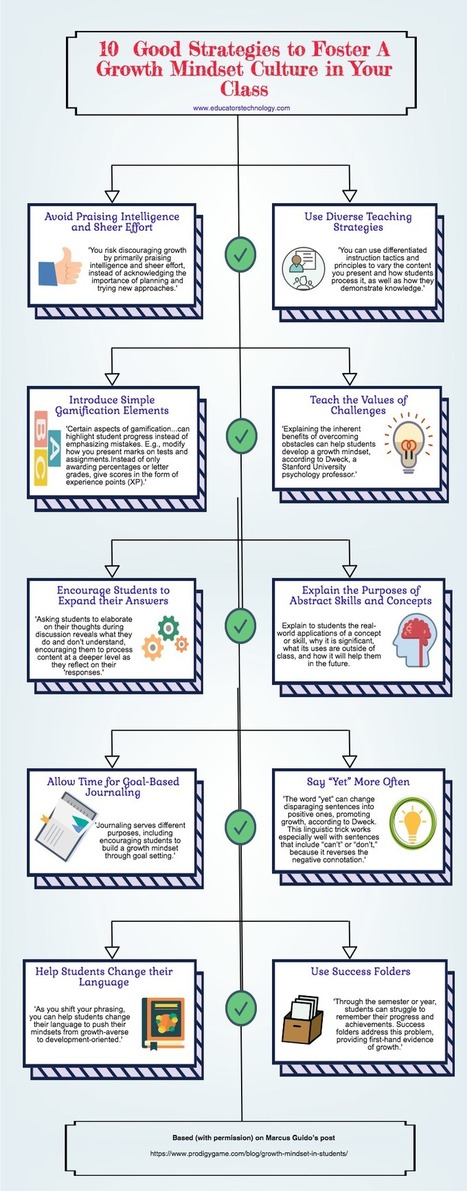


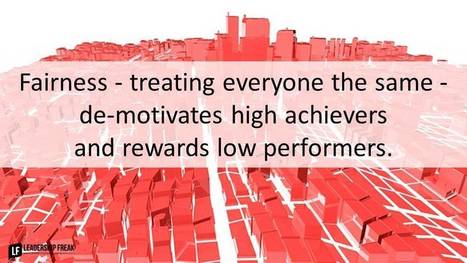









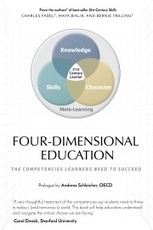















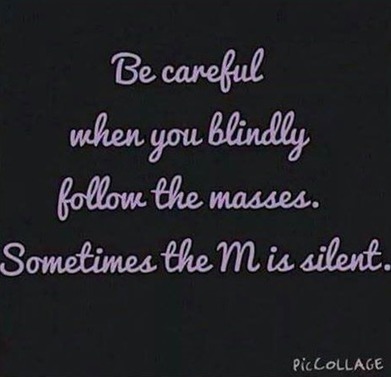

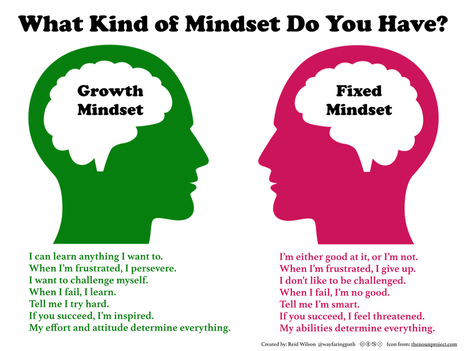



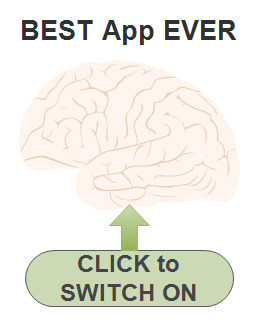
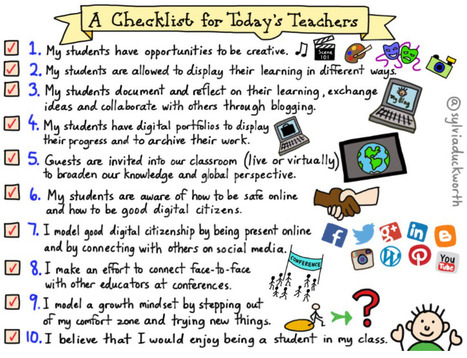
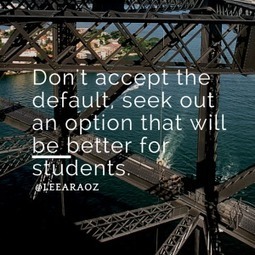





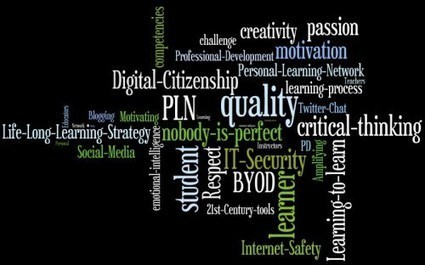

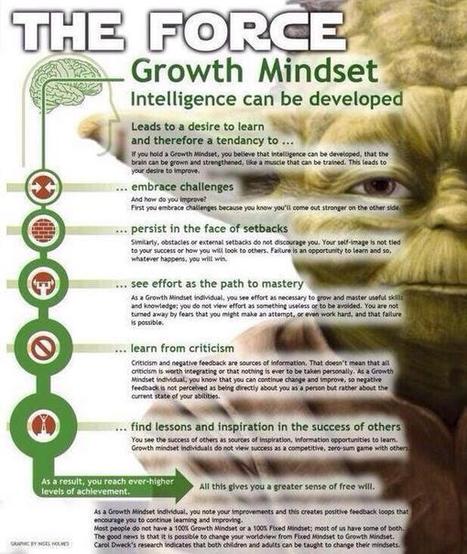








August , 2017
In her celebrated book ‘Mindset: The New Psychology of Success’, Stanford university psychologist Carol S. Dweck makes a strong case backed up with scientific evidence for the power of mindset in shaping one’s success or failure in almost every facet of our life.Those with a fixed mindset mentality tend to be limited in their learning scope believing that their inner traits and abilities are biologically determined. On the other hand, people with a growth mindset embrace change and tend to learn more from life experiences because for them concepts such as skills, abilities and competencies are not fixated and can be developed through a process of error and trial.
In today’s post, we are sharing with you this handy infographic we created based on Marcus Guido’s post ’10 Ways Teachers Can Instill a Growth Mindset in Students’. Guido walks you through the different strategies you can use with your students to cultivate a growth mindset in your class and ultimately enhance students learning. Read his post to learn more about each of the strategies featured here.
The visual below is also available in PDF format from this link.
Learn more / En savoir plus / Mehr erfahren:
https://gustmees.wordpress.com/?s=growth+mindset
https://gustmees.wordpress.com/?s=practice